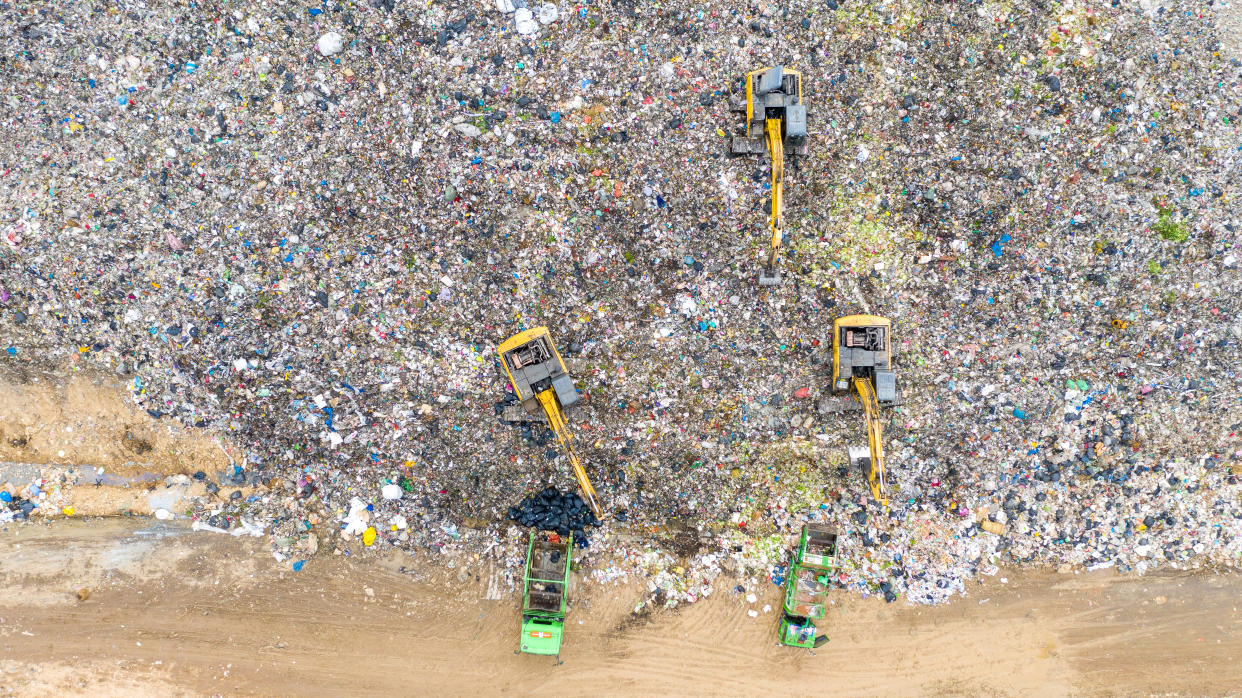Plastic pollution could pose another danger to our planet

Plastic pollution is now found everywhere on our planet, from the furthest reaches of Antarctica to the depths of the sea.
But could plastic pose another danger to Earth – by adding more carbon into natural systems around the planet?
Plastic is largely made up of carbon, which is released into the environment when it breaks down – which could have important effects on ecosystems around the world.
It could even have an impact on the climate, researchers have warned.
Aron Stubbins, a professor of marine and environmental sciences, chemistry and chemical biology, and civil and environmental engineering at Northeastern University, investigated – and says he found "surprising" results.
Stubbins said: “It was clear that there were some environments in which plastics are now a significant amount of the carbon. There's as much plastic-carbon as there is natural carbon in some ecosystems."
Watch: Plastic pollution - China starts tackling colossal problem
Read more: Why economists worry that reversing climate change is hopeless
Stubbins worked with colleagues to put together a sketch of the global plastic-carbon cycle, and further calculated the amount of carbon that plastics add to the environments that they pollute.
Stubbins said: "We've added a new material plastic carbon cycle alongside the natural carbon cycle.”
So much carbon introduced by plastic pollution into the natural environment could have a ripple effect across life forms, ecosystems, and even the planet's climate.
Read more: A 1988 warning about climate change was mostly right
Plastic production and use began in earnest around 1950.
By 1962, Stubbins found, the amount of carbon in plastics that had been created surpassed the total amount in all humans on the planet.
By 1994, plastic-sourced carbon topped the amount of the chemical element in all animals.
"The plastics are just building up," he said.
Some of the most significant accumulation occurs in the surface waters of subtropical ocean gyres, where currents cycle in just such a way that floating materials accumulate in a sort of patch.
Read more: Melting snow in Himalayas drives growth of green sea slime visible from space
If plastics release carbon into ocean ecosystems, it might alter the climate, Stubbins says.
That's because a thin layer on the surface of the world's oceans plays an important role in the exchange of material between the ocean and the atmosphere.
The aerosols and trace gases involved in that exchange can "change atmospheric chemistry, which can change climate", he said.
"So if there's this high concentration of plastics in that particular layer at the very surface of the sea, then that could have ramifications for the lower atmosphere."
Watch; Amazing art sculptures created with ocean rubbish


